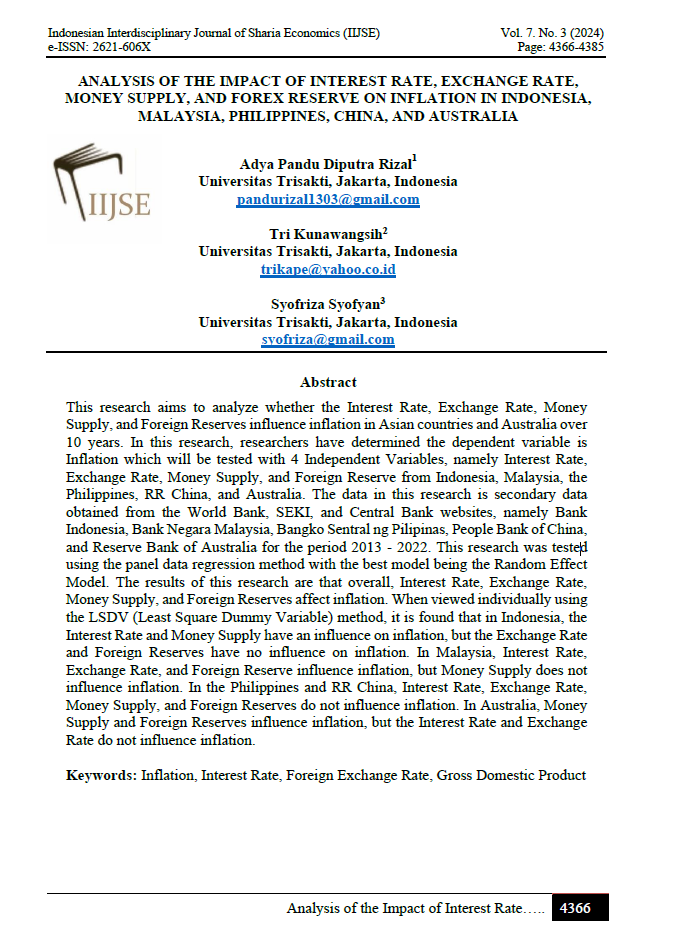
This research aims to analyze whether the Interest Rate, Exchange Rate, Money Supply, and Foreign Reserves influence inflation in Asian countries and Australia over 10 years. In this research, researchers have determined the dependent variable is Inflation which will be tested with 4 Independent Variables, namely Interest Rate, Exchange Rate, Money Supply, and Foreign Reserve from Indonesia, Malaysia, the Philippines, RR China, and Australia. The data in this research is secondary data obtained from the World Bank, SEKI, and Central Bank websites, namely Bank Indonesia, Bank Negara Malaysia, Bangko Sentral ng Pilipinas, People Bank of China, and Reserve Bank of Australia for the period 2013 - 2022. This research was tested using the panel data regression method with the best model being the Random Effect Model. The results of this research are that overall, Interest Rate, Exchange Rate, Money Supply, and Foreign Reserves affect inflation. When viewed individually using the LSDV (Least Square Dummy Variable) method, it is found that in Indonesia, the Interest Rate and Money Supply have an influence on inflation, but the Exchange Rate and Foreign Reserves have no influence on inflation. In Malaysia, Interest Rate, Exchange Rate, and Foreign Reserve influence inflation, but Money Supply does not influence inflation. In the Philippines and RR China, Interest Rate, Exchange Rate, Money Supply, and Foreign Reserves do not influence inflation. In Australia, Money Supply and Foreign Reserves influence inflation, but the Interest Rate and Exchange Rate do not influence inflation.

Oleh :
Tri Kunawangsih P